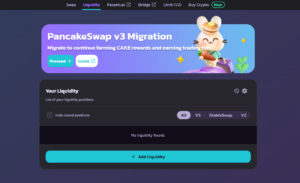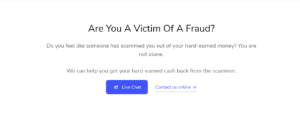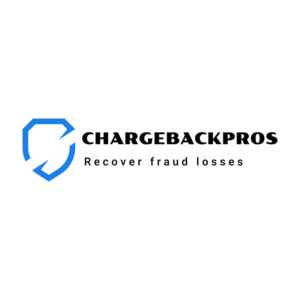How to recover crypto assets following a death

If you are an estate executor or administrator, you may need to recover crypto assets following the death of a loved one.
This can be difficult because there is no central database for these assets and they are often held in multiple wallets. However, there are steps you can take to help secure any cryptocurrencies that may be part of your loved one’s estate. Recovery of crypto assets is possible because the blockchain technology used by these currencies provides a permanent record of transactions.
The blockchain is a digital ledger that records all transactions and details of these transactions are publicly available. Being a public ledger that records every transaction that has ever occurred on a network. This means that the blockchain can be used to track down any assets held in digital wallets and identify their owners.
Family members often want to help. On the one hand, this is wonderful. Having someone you 100% trust take part can be very helpful. But, remember that crypto-assets (at least from a legal standpoint) are just another asset owned by the deceased.
Helping to recover those assets doesn’t give that family member any preferential right to a share of the asset. Remember that division of assets following a death may ultimately be decided through a probate process, and that process may supersede any informal agreement about how recovered crypto assets will get divided.
Many of the cryptocurrency wallets created since 2013 have used a very simple backup mechanism called a recovery seed (also known as a mnemonic, a seed phrase, or a recovery phrase).
These phrases are almost always either 12 or 24 words long (although they can be as long as 25 words).
There are, in fact, many ways to lose access to your crypto, so proceed with extreme caution when sharing information and especially when asking questions online. There are, in fact, many ways to lose access to your crypto forever, so proceed with extreme caution when sharing information and especially when asking questions online. The problem is that digital assets are often harder to locate. The family members might not know that they even exist, especially if the deceased doesn’t have a centralized record of what they are and how much they are worth.
On top of that, digital assets are password protected. Even if the family members know where the deceased digital assets are, without the right passwords, those hard-earned investments are stuck out of reach.
Who has the right to recover a dead relative’s crypto?
In most countries (including the US and most of the West), crypto is an asset that needs to go through the probate system like any other asset.
This generally means that only the administrator of the estate has the right to recover the funds, and they will likely need to report the funds back to the probate court. (If the deceased had debts when they died, for example, the probate court might decide that some of the crypto funds recovered should go towards paying back those debts).
Generally speaking, you want to see if you can find evidence of crypto accounts first. Then, once you believe there are accounts, call your local probate court and ask them how to proceed.
The Revised Uniform Fiduciary Access to Digital Assets Act (RUFADAA)
Legislation often lags behind technology, but there are some laws that dictate how digital assets can be accessed after a person’s death.
The Revised Uniform Fiduciary Access to Digital Assets Act, or RUFADAA, is a U.S. law passed in 2015 that governs access to a person’s online accounts after that person dies or is incapacitated. The law grants the executor of a will or trustee the ability to manage digital assets like websites, domain names, and virtual currency while also protecting the deceased person’s privacy. RUFADAA also restricts access to personal communications like email accounts, text messages, and social media accounts, unless permission was explicitly granted in the will.
How to Track Down Crypto Accounts
Tracking down crypto assets is not always easy and requires a great deal of technical knowledge, but it is possible. If you believe that your loved one may have been involved in cryptocurrency trading, then it is important to secure any assets that may be part of their estate.
Most people that have acquired crypto assets since 2015 probably manage them through a login process that requires an email address and a password. So, often the quickest place to start is by checking their email account.
However, anyone that was into Bitcoin early, or that was very security conscious may have used a wallet that is not connected to an email account. There are many types of non-custodial crypto accounts that would not necessarily show up in someone’s email account. If they owned Bitcoin since 2009, that might only be discoverable by looking through the filesystems of the computers that they own. This article may help you track that down.
Can you log in to the deceased’s primary email accounts?
- If yes, skip to the section titled “What to do once you have access to the deceased’s email”
- If no, read on.
How to Get Access to the Deceased’s Email Accounts
If you don’t know the deceased’s password for a particular account, but you know some of their other passwords, and you have the legal right to access their accounts, then you can use the “forgot password” or “reset password” options to try to reset the account.
If that fails, you may try to guess their email password based on their other passwords. Know that you probably will have a limited number of incorrect guesses before the account gets locked.
If that also fails, then you need to get legal help. Most email providers require a court order to grant you access to a deceased person’s email account. This means that you’ll need to get a lawyer involved.
What to Do Once you Have Access to the Deceased’s Email
You’re looking for evidence of one of two kinds of accounts:
- a custodial crypto account (with a company like Coinbase.com, Gemini.com, Nexo.io, etc). If you find evidence of that, then those companies are the custodians of the funds, meaning that when you have provided them with the correct paperwork, they will give control of those accounts over to the administrator of the deceased’s estate.
- a non-custodial crypto account (with a company like Blockchain.info / Blockchain.com / Dogechain.info, etc). If you find evidence of these assets, things may be trickier. Your deceased relative was actually the custodian of these accounts. Meaning that there’s no one that can reset the password on the account. They may have those passwords stored in a password manager (like their Chrome password manager, or LastPass), they may have written them down somewhere, or those passwords may be lost. If the passwords are entirely lost, then you can try to guess them yourself or you’d need to work with a company like ours to try to recover them.
Hire a professional blockchain recovery expert to examine the blockchain and determine if your loved one has any crypto assets.
A professional blockchain recovery expert will help you to trace their transactions and locate any assets that are held in cryptocurrency wallets. It will take time, patience and a great deal of effort on their part, but once the recovery process has been completed you can rest assured that your loved one’s digital assets will be secure.
If you find that they do, then you can work with a professional to secure those assets and distribute them according to your state’s laws regarding inheritance.
Caveat: crypto, like any other asset, has to go through a probate process. So, if at any point we were to work with you to recover passwords or anything like that, we’d need to work with whoever is the administrator of the estate, and we have to verify their id and probate documentation.











